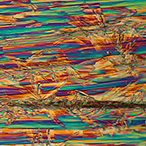Ionic Rare Earths Poised to Capitalize on Rising Demand for Recycled Magnet Rare Earths

Ionic Rare Earths: Pioneering magnet recycling technology and developing a heavy rare earth project to supply critical elements for the global energy transition.
- Ionic Rare Earths is advancing magnet recycling in Belfast through Ionic Technologies and developing the Makuutu rare earths project in Uganda
- The company raised $5.5M to advance projects amid challenging rare earths market; demand strong from UK and Europe for recycled magnet rare earths
- Expanding Ionic Technologies recycling into other markets like Europe, U.S., Asia and Brazil; leveraging IP and partnerships
- Feasibility study on Belfast recycling plant expected mid-2024; targeting 2026 production initially supplying 200tpa to meet UK demand
- New joint venture with Veritas Mining to establish rare earths refining and recycling in Brazil as part of building a rare earths ecosystem there
Pioneering the Path to Secure Magnet Rare Earth Supply
With electric vehicle adoption accelerating globally, the race is on to secure adequate supplies of rare earth elements, critical ingredients in EV traction motors and other clean energy technologies. One company, Ionic Rare Earths (ASX:IXR), aims to position itself at the forefront of this rapidly growing market by pioneering magnet recycling technology.
Ionic Rare Earths recently raised $5.5 million in a share placement to fund the advancement of its key projects - the Makuutu rare earths project in Uganda and its cutting-edge magnet recycling business Ionic Technologies based in Belfast, UK. While the raise was completed at a lower price than initially hoped due to challenging rare earths market conditions, Ionic Managing Director Tim Harrison sees robust demand ahead, especially from customers in the UK and Europe seeking recycled magnet rare earth supply.
"The demand's there for the product, the demand's there for recycled materials because the supply chain and the OEMs are asking for that material," said Harrison. "They're asking for that to come into their existing capacity and existing production, now. And we're the only people out there, we're the only company out there producing separated magnet rare earth oxides that can be used to make the sintered magnets."
Interview with Tim Harrison, Managing Director of Ionic Rare Earths
Pioneering Recycling Technology
At the heart of Ionic's strategy is Ionic Technologies, which has developed a unique process to recycle end-of-life magnets into new magnetic materials. The company is currently operating a demonstration plant in Belfast and is working towards a feasibility study for a larger commercial facility.
According to Harrison, the UK government has been highly supportive of Ionic Technologies, providing £3.5 million to date to develop the demonstration plant and complete the feasibility study. Discussions are ongoing regarding further support for a commercial plant in Belfast.
"Completion of the feasibility study, which we're aiming to have done certainly in the next few months, we can position this with a clear articulated ask to the UK government on what it is that we can deliver to the UK government through the development of magnet recycling here in the UK," outlined Harrison.
Ionic is targeting initial production of 200 tonnes per annum of recycled magnet rare earth oxides from the Belfast plant, which would supply a significant portion of the UK's burgeoning EV motor manufacturing sector. The company is also in discussions with customers in Europe about offtake.
Expanding the Footprint
Beyond the UK, Ionic is actively working to roll out its magnet recycling technology into other key markets. Discussions are underway with potential partners in the U.S., Asia, and Brazil.
In Brazil, Ionic recently formed a joint venture with Viridis Mining and Minerals to develop a rare earths refining and recycling business. Brazil is already a major auto manufacturing hub and is expected to see strong growth in EV and renewable energy adoption in the coming years.
"Brazil presents a very, very good opportunity to develop a much larger ecosystem for rare earths," explained Harrison. "And I think we want to be part of the landscape that's emerging there. So through this relationship, Viridis has the ability to now commit offtake with separated rare earth oxides. For ourselves, there is a footprint here for us to explore and build a footprint in Brazil and be part of that landscape."
The JV partners aim to complete a scoping study on a Brazilian rare earths refinery and recycling facility by the end of 2024. Longer-term, the JV could potentially look to develop rare earth resources in Brazil to feed the refining and recycling operations.
Primary Supply Progress
In parallel with its recycling initiatives, Ionic Rare Earths continues to advance its 60%-owned Makuutu rare earths project in Uganda. The company is currently producing a mixed rare earth carbonate product from a demonstration-scale plant, which will be sent to potential offtake partners for evaluation.
Makuutu is considered prospective for so-called "heavy" rare earths like dysprosium and terbium, essential for high-strength permanent magnets and projected to be in deficit in the coming years. Offtake discussions for Makuutu production are ongoing.
Conclusion
Ionic Rare Earths provides direct exposure to the exponential growth in demand for magnet rare earths through its pioneering work in recycling and its Makuutu primary development project. With a clear path to commercialisation in the UK, global expansion plans, and a highly prospective heavy rare earth resource in Uganda, Ionic is well placed to become a significant supplier of critical rare earth elements to Western supply chains. Key catalysts to watch include the completion of a commercial-scale feasibility study in mid-2024, the signing of offtake and funding agreements, and the first production from recycling in 2026.
The Investment Thesis for Ionic Rare Earths
- Exposure to the exponential growth of EVs and renewable energy through critical magnet rare earth supply
- Pioneer in magnet recycling technology with first-mover advantage; £3.5M of funding secured to date from UK government
- Targeting near-term recycled production in the UK with a clear path to commercialisation and revenue generation by 2026
- Expanding recycling footprint globally into major growth markets leveraging proven IP and government/industry partnerships
- Portfolio of recycling and primary rare earth supply provides flexibility and mitigates development risks
- High exposure to "heavy" rare earths like dysprosium and terbium through the Makuutu project
- Key catalysts: Completing Belfast feasibility study, securing commercial partnerships and offtake, commencing commercial production
Macro Thematic Analysis
The global shift towards electrification and decarbonisation is driving exponential growth in demand for rare earths, particularly those used in permanent magnets for EV motors and wind turbine generators. With China currently dominating the rare earths supply chain, Western governments and industry are urgently seeking to diversify supplies.
Recycling is emerging as an attractive solution, offering the potential for a secure, domestic source of magnet rare earths without the geopolitical risks and environmental impact of mining. Ionic Rare Earths is at the forefront of this trend through its ownership of Ionic Technologies, which has developed a unique process to recycle end-of-life magnets into new magnetic materials.
As Managing Director Tim Harrison explains: "Recycling is a great way to penetrate that market and build a footprint... The demand's there for recycled materials because the supply chain and the OEMs are asking for that material. They're asking for that to come into their existing capacity and existing production now."
With support from the UK government and partnerships with major industry players, Ionic Rare Earths is well-positioned to become a major supplier of recycled magnet rare earths to Western supply chains. The company's parallel development of the Makuutu primary rare earths project in Uganda provides additional exposure to critical heavy rare earths and mitigates development risks. As the world races to secure rare earth supplies for the clean energy transition, Ionic Rare Earths offers a compelling investment opportunity.
Analyst's Notes




Subscribe to Our Channel
Stay Informed


















